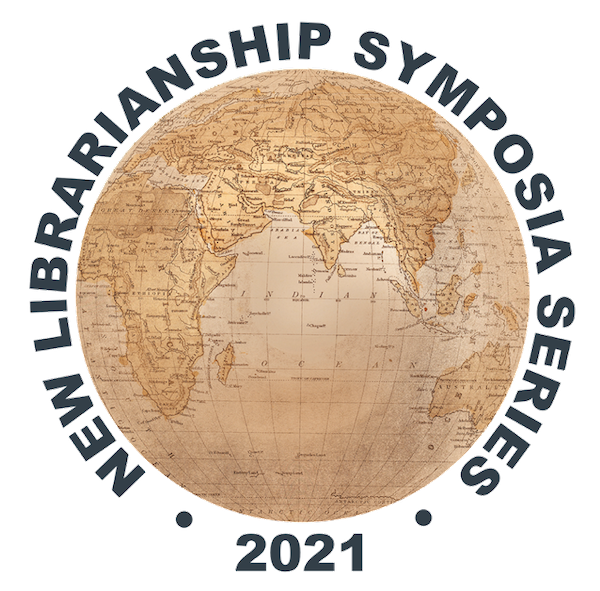African and Afro-Brazilian Cultures in Education in Library Science in Brazil: From Epistemicide to Strategies for Inclusion of Ethnic-Racial Themes in Teaching
Submission Type
Paper Abstract Submission
Symposium Selection
Equity, diversity, and inclusion
Keywords
Black Librarianship - Brazil. Librarian Education - Brazil. African and Afro-Brazilian Cultures - Brazil. Social Representations. Teaching perceptions. Information Science. Social Justice.
Abstract
Coming from dissertation research, this research aims to understand the social representations about African and Afro-Brazilian cultures in the Education in Library and Information Science in Brazil from normative instruments (pedagogical political project, syllabus, program and bibliography of the disciplines) and speeches of teachers belonging to federal and state educational institutions that offer the courses of Library Science. As a theoretical framework, this research presents the American Black Librarianship and the Brazilian Black Librarianship as historical movements fighting for the representation of the black population in the curriculum, in the library and in access to civil rights, including access to information for their social transformation. We contextualize epistemicide and alterocide as forms of exclusion and death of knowledge from black populations in the production of scientific knowledge and in libraries. We also discuss about professional pseudoneutrality and the influence of racial privilege and whiteness in science, library practice and teaching in Brazilian Library and Information Science. The theoretical-methodological frame of reference is based on the Sociology of knowledge and on social-constructivism, which have as a methodological support the theory of social representations. It is an applied and exploratory research of phenomenological nature, whose procedure of collection and analysis of the discourses is based on the technique of the Discourse of the Collective Subject. In addition to the interview, a questionnaire to characterize the profile of teachers for data collection was used. The results related to the documentary corpus demonstrated the presence of 16 disciplines with approaches related to African and Afro-Brazilian cultures, with only eight specific disciplines, of which 12 are elective disciplines and four are compulsory disciplines. Regarding teacher perceptions, from the analysis of the Discourse of the Collective Subject, the results brought five points of discussion, namely: the complexity and diversity of the social challenges of the current librarian training; the formation of the librarian and the incipient relationship with African and Afro-Brazilian cultures; the unfamiliarity on actions that insert these cultures in courses of Library Science; the indication of bibliographic sources, authors, disciplines or projects on African and Afro-Brazilian cultures and the development of the Brazilian Black Librarianship and the (awareness of) whiteness present in the teaching discourses. Based on the results, we suggest strategies for the construction of an anti-racist, decolonial curriculum that helps in the promotion of informational, racial and social justice for historically excluded populations, as is the case of the population shown here.
African and Afro-Brazilian Cultures in Education in Library Science in Brazil: From Epistemicide to Strategies for Inclusion of Ethnic-Racial Themes in Teaching
Coming from dissertation research, this research aims to understand the social representations about African and Afro-Brazilian cultures in the Education in Library and Information Science in Brazil from normative instruments (pedagogical political project, syllabus, program and bibliography of the disciplines) and speeches of teachers belonging to federal and state educational institutions that offer the courses of Library Science. As a theoretical framework, this research presents the American Black Librarianship and the Brazilian Black Librarianship as historical movements fighting for the representation of the black population in the curriculum, in the library and in access to civil rights, including access to information for their social transformation. We contextualize epistemicide and alterocide as forms of exclusion and death of knowledge from black populations in the production of scientific knowledge and in libraries. We also discuss about professional pseudoneutrality and the influence of racial privilege and whiteness in science, library practice and teaching in Brazilian Library and Information Science. The theoretical-methodological frame of reference is based on the Sociology of knowledge and on social-constructivism, which have as a methodological support the theory of social representations. It is an applied and exploratory research of phenomenological nature, whose procedure of collection and analysis of the discourses is based on the technique of the Discourse of the Collective Subject. In addition to the interview, a questionnaire to characterize the profile of teachers for data collection was used. The results related to the documentary corpus demonstrated the presence of 16 disciplines with approaches related to African and Afro-Brazilian cultures, with only eight specific disciplines, of which 12 are elective disciplines and four are compulsory disciplines. Regarding teacher perceptions, from the analysis of the Discourse of the Collective Subject, the results brought five points of discussion, namely: the complexity and diversity of the social challenges of the current librarian training; the formation of the librarian and the incipient relationship with African and Afro-Brazilian cultures; the unfamiliarity on actions that insert these cultures in courses of Library Science; the indication of bibliographic sources, authors, disciplines or projects on African and Afro-Brazilian cultures and the development of the Brazilian Black Librarianship and the (awareness of) whiteness present in the teaching discourses. Based on the results, we suggest strategies for the construction of an anti-racist, decolonial curriculum that helps in the promotion of informational, racial and social justice for historically excluded populations, as is the case of the population shown here.


